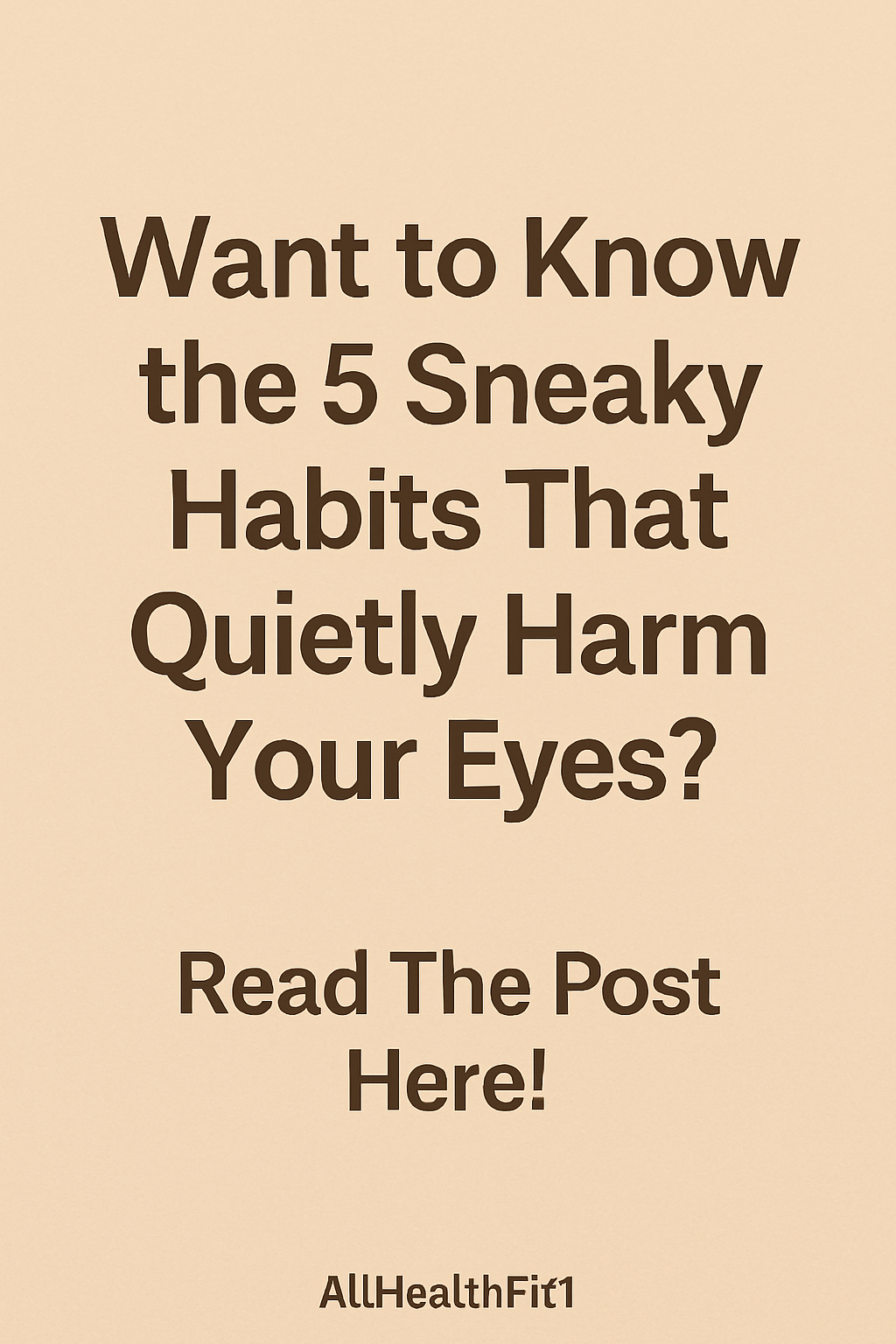Your eyes do more than help you see — they reflect your energy, brain health, and hydration status. They’re also silent messengers of your overall health. In today’s high-tech world of screens, artificial lighting, and digital overload, it’s easy to fall into habits that quietly chip away at your vision — until the symptoms become impossible to ignore. The good news? With mindful daily practices, you can not only preserve your vision but also boost your overall well-being.
🌟 Why Eye Health Deserves More of Your Attention
Your eyes are direct extensions of your central nervous system — in fact, the optic nerve is considered part of the brain. This makes them incredibly sensitive to lifestyle, environmental, and dietary changes. Eye exams often reveal the first clues to chronic illnesses like:
- Diabetes (via retinal blood vessel changes)
- Hypertension (visible blood vessel damage)
- High cholesterol (yellow deposits in the eyes)
- Autoimmune diseases and neurological conditions
Yet many people only visit an eye doctor when vision starts to decline. Eye health should be proactive, not reactive. Protecting your eyes now is an investment in your independence, safety, and quality of life later.
What Happens When Vision Is Neglected:
- Headaches or migraines from strain
- Blurry or fluctuating vision
- Sleep disturbances from blue light
- Trouble with depth perception and balance
- Increased risk of falls, especially in older adults
🌿 5 Everyday Habits That Quietly Damage Your Eyes and Simple Fixes!
1. Staring at Screens for Long Periods
Problem: Extended screen use reduces blink rate, leading to dryness and digital eye strain tips symptoms.
Fix it: Use the 20-20-20 rule (every 20 minutes, look 20 feet away for 20 seconds). Position your screen below eye level, and apply a warm compress in the evening.
2. Exposure to Blue Light at Night
Problem: Overexposure to blue light disrupts melatonin production, causes fatigue, and may accelerate retinal stress.
Fix it: Enable blue light filters or Night Shift mode after sunset. Limit screens before bed and use warm lighting. Light eye protection tools like amber glasses can help.
3. Poor Hydration
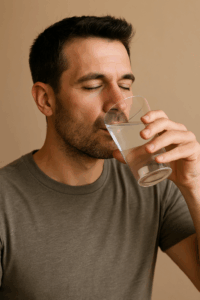
Problem: Not drinking enough water can result in dry eyes and inadequate tear production.
Fix it: Start your day with water and aim for at least 8–10 cups daily. Eat hydrating foods like cucumbers, citrus, and potassium-rich foods[/blue] like spinach and sweet potatoes.
4. Rubbing Your Eyes
Problem: Hands carry bacteria and allergens. Rubbing the eyes can lead to infection, dark circles, and damage.
Fix it: Use clean, cool compresses or preservative-free lubricating drops to relieve irritation safely.
5. Skipping Sunglasses
Problem: UV exposure accelerates the risk of cataracts and macular degeneration.
Fix it: Wear sunglasses year-round, even on cloudy days. Look for 100% UVA/UVB protection.
🕶️ Fit-Over HD Polarized UV400 Sunglasses: A Smart Daily Choice
If you wear prescription glasses or want hassle-free protection, try these HD Polarized UV400 Fit-Over Sunglasses.
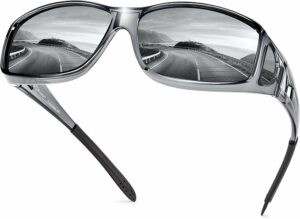
Buy Now
Why they work:
- Polarized lenses block glare and UV400 rays
- Fit over prescription glasses (frame ≤ 5.59″ wide x 1.57″ high)
- Ideal for driving, walking, or spending time outdoors
This affordable upgrade shields your eyes from UV damage and supports long-term vision health.
🥕 Foods That Support Long-Term Vision Naturally
Nutrients fuel every cell in your body — and your eyes are no exception. A diet rich in antioxidants, healthy fats, and vitamins helps protect against age-related eye disorders.
Top Eye-Nourishing Foods:
-

Nourish Your Vision Naturally: Eye-Healthy Foods That Fuel Clearer Sight. Leafy Greens (Spinach, Kale, Collards): Packed with lutein and zeaxanthin to shield your retina from blue light
- Carrots & Sweet Potatoes: Rich in beta-carotene, which the body converts to vitamin A
- Fatty Fish (Salmon, Tuna, Sardines): Provide omega-3s for tear film stability
- Eggs: Yolks contain zinc, lutein, and zeaxanthin for macular protection
- Berries & Grapes: Contain anthocyanins that fight inflammation
- Nuts & Seeds (Almonds, Sunflower Seeds): High in vitamin E, an antioxidant that reduces oxidative stress
- Citrus Fruits (Oranges, Grapefruits): Deliver vitamin C to support blood vessels in the eyes
Pair these foods with healthy fats (like avocado or olive oil) to improve nutrient absorption.
💊 Consider a Supplement: Why Lutenol Works
Even with a nutrient-rich diet, you may not hit the optimal amounts daily. That’s where a high-quality supplement like Lutenol can make a big difference.
Lutenol Highlights:
- Lutein & Zeaxanthin: Help filter harmful blue light and protect against macular degeneration
- Vitamin A, E & Zinc: Support night vision, immune defense, and retina repair
- Bilberry & Quercetin: Strengthen capillaries and reduce oxidative damage
- Made in the USA: GMP-certified and third-party tested
💊 Each bottle contains 60 vegetarian capsules designed for daily use.
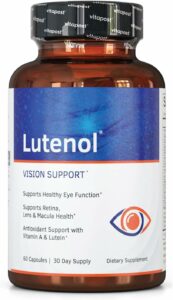
👉 Click here to check out Lutenol on Amazon 👈
🧼 Build Your Daily Eye Care Routine
Start and end your day with healthy eye habits:
Morning:
- Drink a glass of water to hydrate the tear film
- Wash your face with a clean towel to remove sleep residue
- Wear sunglasses on your morning walk
Midday:
- Use artificial tears if eyes feel dry
- Step away from screens and do 20-20-20
- Eat a nutrient-packed lunch (salmon salad or spinach wrap)
Evening:
- Limit screen time 1 hour before bed
- Apply a warm compress to relax your eyes
- Use a humidifier in your bedroom
These small steps can protect against fatigue, dryness, and age-related damage.
❓ Frequently Asked Questions & Answers
1. Do I need sunglasses on cloudy days? Yes! UV rays can still penetrate clouds. Wearing UV-blocking sunglasses year-round is one of the best habits for long-term eye protection.
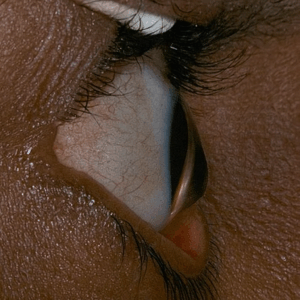
2. Is rubbing my eyes risky? Definitely. It increases your risk of corneal damage, dark circles, and even keratoconus — a condition where the cornea thins and bulges.
3. Can dehydration cause blurry vision? Absolutely. Your eyes rely on water to produce tears. Dehydration causes dry, blurry, or burning sensations.
4. What is digital eye strain? Also called computer vision syndrome, it results from prolonged screen exposure. Symptoms include blurry vision, headaches, neck pain, and dry eyes.
5. Which vitamins are best for eye health? Vitamin A (for night vision), C (antioxidant), E (macular protection), zinc (retinal support), lutein, and zeaxanthin (blue light defense).
6. What’s a quick eye-healthy snack? Hard-boiled eggs with almonds or a handful of blueberries and sunflower seeds — all rich in eye-loving nutrients.
7. Is Lutenol safe to take daily? Yes. Lutenol is manufactured under strict safety standards and is safe for ongoing use unless advised otherwise by your doctor.
8. Can eye symptoms reveal broader health problems? Yes — your eyes can show early signs of diabetes, hypertension, MS, and other conditions. That’s why regular exams are vital.
Your Vision Reflects Your Health
Your eyes don’t just see the world — they reveal it. From tracking signs of systemic illness to helping you read a book or watch a sunset, your vision is one of the most vital parts of your daily life. Don’t take it for granted.
🔵 AllHealthFit1 ProTip:
Treat your eyes like your heart or muscles: nourish them, rest them, and protect them every day for clarity that lasts.
AI Disclaimer: Portions of this article were enhanced using AI tools and finalized by Dr. Marjorie DiCarlo, M.D., Ph.D., M.P.H. to ensure clinical accuracy and practical guidance.
⚠️ Medical Disclaimer: This content is for educational purposes only and does not replace professional medical advice. Always consult your healthcare provider for vision-related concerns.
📚 References
💌 Enjoyed This Post?
Don’t miss a beat — get wellness tips, science-backed health content, and new posts delivered to your inbox. 👉 Subscribe to the “Healthy You Insider” newsletter
In Health and Wellness,
Dr. Marjorie DiCarlo, M.D., Ph.D., M.P.H.
Founder, AllHealthFit1 ❤️🏃♀️🍃
💬 Have thoughts or questions about this topic? Feel free to share them in the comments below — I’d love to hear from you!
🌱 More Wellness Reads 🌱
 🌿 Backed by Science: Latest Research on Stroke Prevention You Can Trust 🌿
🌿 Backed by Science: Latest Research on Stroke Prevention You Can Trust 🌿
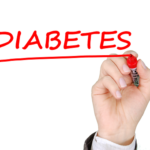 Mastering Diabetes for a Healthier Life: Essential Facts You Need to Know
Mastering Diabetes for a Healthier Life: Essential Facts You Need to Know
 🌿 Are Carrots, Rich in Vitamin A, Truly Beneficial for Your Vision? 🌿
🌿 Are Carrots, Rich in Vitamin A, Truly Beneficial for Your Vision? 🌿
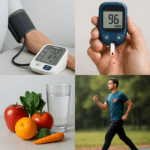 🌱 Stay Ahead of Silent Killers: Monitor Blood Pressure, Sugar & More 🌱
🌱 Stay Ahead of Silent Killers: Monitor Blood Pressure, Sugar & More 🌱
 🍃10 Empowering Tips for Healthy Eating to Manage Hypertension🍃
🍃10 Empowering Tips for Healthy Eating to Manage Hypertension🍃
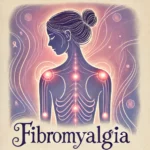 Is There a Correlation Between Osteomalacia and Fibromyalgia?
Is There a Correlation Between Osteomalacia and Fibromyalgia?
Powered by YARPP.
